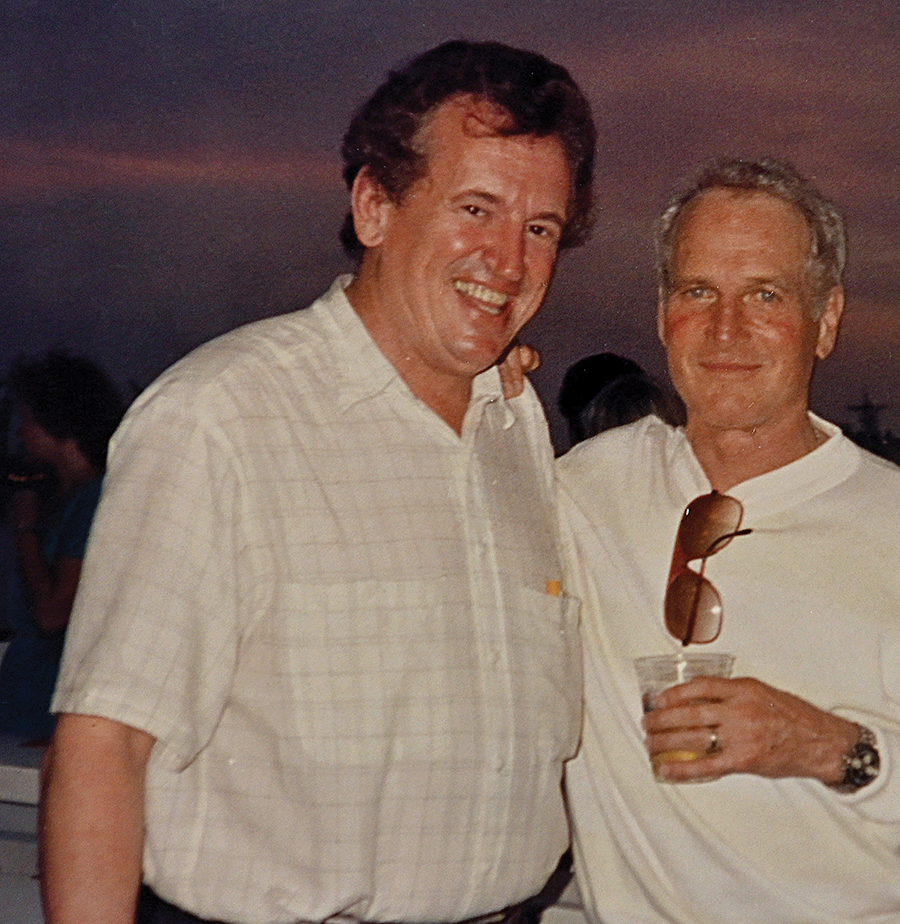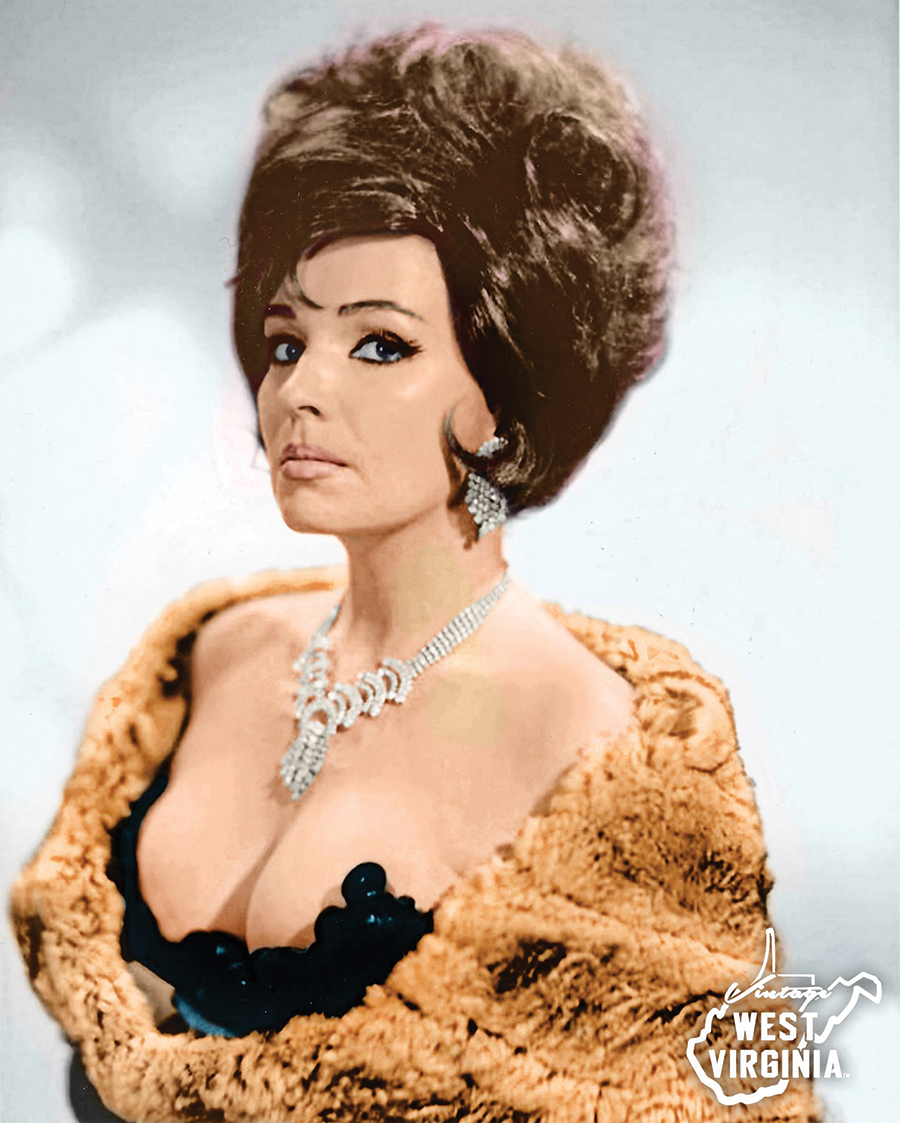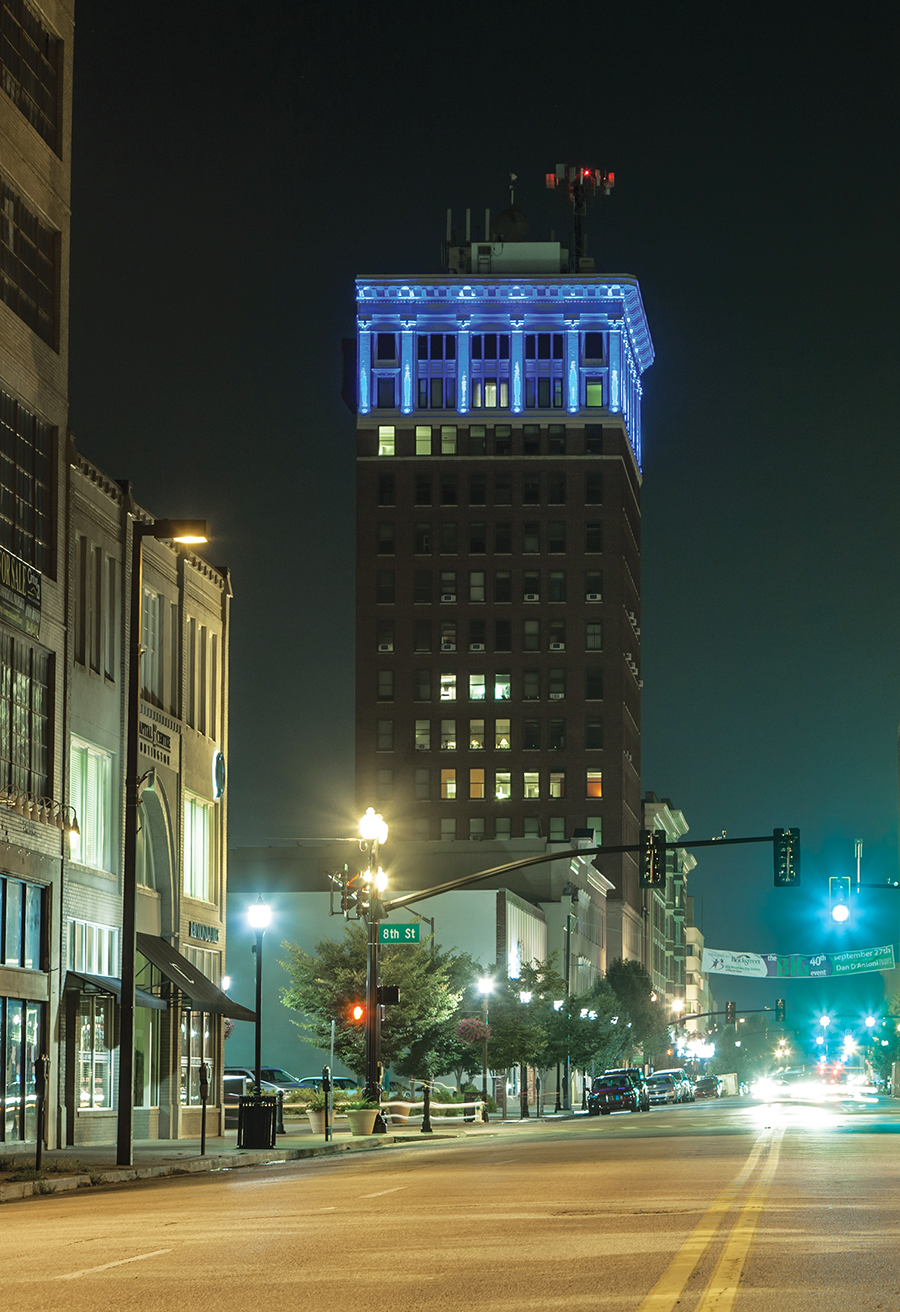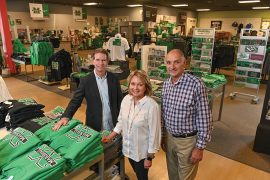Meet the teacher, public servant, businessman and author who’s had run-ins with everyone from a famous stripper to the FBI.
By James E. Casto
HQ 120 | WINTER 2023
During his long career, Mingo County native Huey Perry has worn many different hats. After graduating from Kentucky’s Berea College and Marshall University, he became a school teacher. Soon he was hired as the director of a nonprofit organization fighting poverty in southern West Virginia. Later he established a successful home health care business. When he moved to Huntington, he bought and refurbished the tallest building in town. Oh, and he’s also a published author who had one of his books made into a major motion picture.
“To be honest,” Perry recalled, “I wasn’t the first choice to lead the Mingo County Economic Opportunity Commission. The board offered the post to someone else, and he accepted. But then he had second thoughts, and so I got the job. I started out trying to work with the county’s political powers, but soon it was clear we were on a collision course. They went to Washington and told Sen. (Robert C.) Byrd they suspected I was misusing federal funds. I’ve always figured he passed that info on to J. Edgar Hoover at the FBI.”

Perry’s suspicions were spot on. Eventually a team of FBI agents stormed into his office and, with their guns drawn, seized all the financial records.
“They found no evidence of wrongdoing, of course,” Perry recalled recently. “But things might have turned out differently if they had found the stack of Communist literature someone had secretly planted in my bottom desk drawer. Luckily, I had found the stuff and burned it all just two days before the raid.”
Despite all that drama, Perry said he’s proud of what the Mingo antipoverty effort accomplished during his tenure.
“We had the first full-year Head Start program in the country. We used welfare mothers as the teachers. That, of course, didn’t go over too well with the school board. We opened co-op grocery stores, a restaurant and a sewing plant that made moccasins. They were all nonprofit, of course, but they created some badly needed jobs.”
FBI agents continued to roam the county, questioning anyone they thought might have evidence against Perry. Their search was fruitless, but the discouraged Perry resigned his post — and went on to write his first book, They’ll Cut Off Your Project (Praeger Publishing, 1972), an account of what happened when the Mingo County politicos saw his efforts on behalf of the poor as a threat to their power. The book was republished by WVU Press in 2011.

Today, Perry laments that the jobs he helped create proved all too temporary; and, as a result of the coal industry’s continuing decline, Mingo County is in the worst shape ever, with life a constant struggle for many.
“Too often missing is the spirit of togetherness that was a hallmark of yesteryear,” he reflected. “The little towns are just a shell of their former essence, with boarded-up windows and only a few struggling businesses remaining. Mingo County has lost 50% of its population since 1950, and the trend continues.”
Perry published his second book, Blaze Starr: My Life as Told to Huey Perry, in 1974. Born Fanny Belle Fleming in Wayne County, Blaze Starr became a well-known stripper in Baltimore. In 1959, she made national news when she had a blatant affair with Louisiana Gov. Earl Long.
“I always get a big kick out of telling how I came to do the book with her,” Perry said. “My second wife and I were in Baltimore visiting her brothers who lived there, and we ended up at the Two O’Clock Club where Blaze performed. I took a napkin and wrote down, ‘Man from Mingo County would like to meet you,’ and sent it backstage. Nothing happened. I waited 20 minutes and sent her another note, saying, ‘Huey Perry from Mingo County would like to meet you.’ She came running out. ‘I’ve heard of you,’ she said. ‘You’re some kind of politician, aren’t you? My mother talks about you all the time.’ She sat down and started talking, telling me her life story. We talked for hours.

“I had just published my first book and my editor wanted me to do a second one. I told Blaze I’d like to do her life story. She said she had been approached by a man at the Baltimore Sun newspaper about working on a book with her. I asked if he had a publisher. ‘I don’t think so,’ she said. I told her I had a publisher. ‘If you change your mind, here’s my phone number; just give me a call.’ I came home and forgot about it. Then one night she called and told me she wanted me to do the book. And that’s how the book came about. I visited Blaze several times with my tape recorder in hand and found her to be a remarkable woman.”
The book sold well. When Perry and Starr signed copies at the old Anderson-Newcomb department Store in Huntington, the line of people stretched out of the store and around the block. Perry’s book was eventually made into the 1989 movie Blaze, starring Paul Newman and Lolita Davidovich. That same year the book was republished by Holt, Rinehart & Winston. Today plans are afoot to turn the story into a Broadway musical.
When he worked with the United Mine Workers health operation, Perry became intimately familiar with home health care — and soon saw an opportunity.
“A Pennsylvania company had developed a portable oxygen concentrator which took the place of the big oxygen tanks you would see on the front porches of so many miners’ houses in the coalfields. A big hose would take the oxygen into the house,” Perry said. “With an old buddy, Jeff Monroe, we set up a company, Monroe Medical, and started selling the new concentrators, replacing the outside tanks with a machine that would sit beside a patient’s bed.
“We merged with a company down in Atlanta that wanted to get into the home health care business. We ended up being the biggest home health business in the country. About a year later, I sold my stock in the company and came to Huntington, looking for somewhere to invest my money.”

In Huntington Perry found another opportunity in the 15-story West Virginia Building. Built in 1924 on the corner of Ninth Street and Fourth Avenue, the impressive structure was the tallest building in the state for many years and today remains the tallest in Huntington. But years of neglect had taken a toll on the once-grand building by the time Perry and his partners — his brother Mervil and Jeff Monroe — acquired it in 1981. They got it at a bargain price but spent a great deal restoring it and installing a luxury restaurant on the top floor overlooking the Ohio River. The partners named their new restaurant Permons, a contraction of their names. It was a hot spot many people in Huntington still talk about.
“We had the restaurant for five years but never made a dollar’s profit from it before we reluctantly closed it,” said Perry. Ultimately, he and his partners sold the building.
Perry recently published his third book, The Legacy of Gilbert Creek Road, which takes readers back to the rural Mingo County landscape where he grew up.
“I’ve tried to show what it was like to be a person in a place or time that is so different from today’s modern world. Born on Gilbert Creek Road in 1936, I have had the opportunity to share both worlds.”

The book opens with a step-by-step account of one of West Virginia’s biggest — and bloodiest — crime stories, the 1914 robbery of the Glen Alum Coal Company when a payroll of $7,000 was stolen in a conspiracy involving one of the mining company’s assistant superintendents.

Other stories include the sad, but ultimately triumphant, story of Perry’s mother Hallie, who started out in life with nothing. But with hard work and determination, she along with her husband Uley put six children through college, all of whom came back home to teach. He writes about what life was like on Gilbert Creek during the grim Depression years and during World War II. As noted in the book’s introduction: “A story may begin with an event as simple as a request for a drink of water or a bite to eat. Or perhaps a bit of rope scavenged as a souvenir from a public hanging subsequently memorialized in a famous song. How could two young boys know for sure that the sudden appearance of a low-flying airplane during World War II might not be a Japanese pilot in search of a target? And who would expect a German spy to focus his information gathering in so remote an area?”
The book concludes with several inspiring poems about what it’s like to live in West Virginia. The longest of these poems is a bit different in that it tells in verse what happened during the War on Poverty in the 1960s. It’s essentially a summary of Perry’s first book, They’ll Cut Off Your Project.

Linked to this longer poem is the short story “Pursuing the Disrupters.” It details what happened when the FBI raided Perry’s office in Williamson, and it includes an additional anecdote explaining why he’s convinced that John F. Kennedy bought his victory in the 1960 primary that cinched his bid for the White House. It’s hard to believe that the events in the poem and short story actually happened, but they did.





